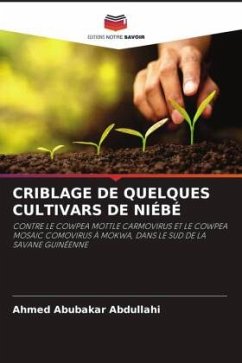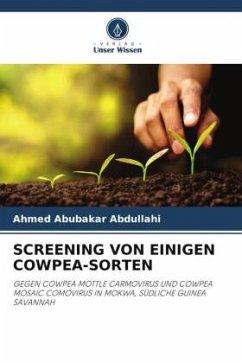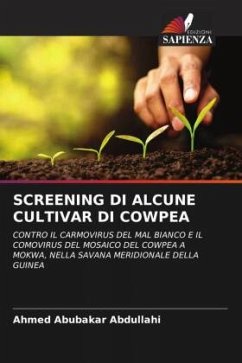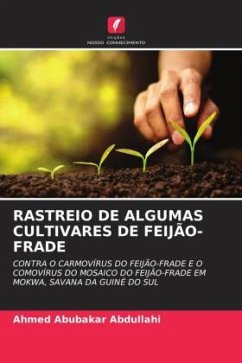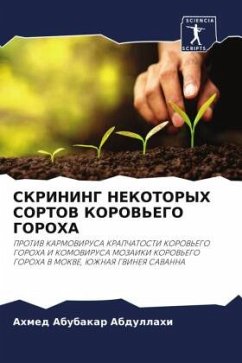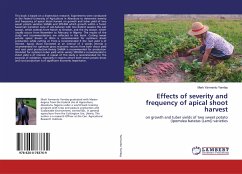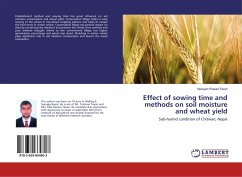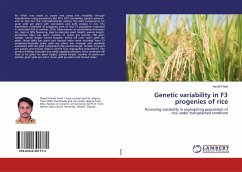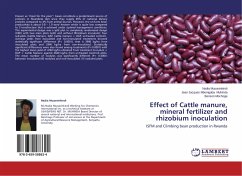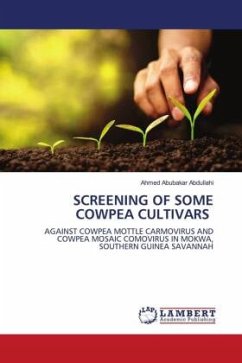
SCREENING OF SOME COWPEA CULTIVARS
AGAINST COWPEA MOTTLE CARMOVIRUS AND COWPEA MOSAIC COMOVIRUS IN MOKWA, SOUTHERN GUINEA SAVANNAH
Versandkostenfrei!
Versandfertig in 6-10 Tagen
29,99 €
inkl. MwSt.

PAYBACK Punkte
15 °P sammeln!
The experiment was conducted under screenhouse at the Research Farm of Ahmadu Bello University (ABU), Zaria, Mokwa Station in 2020 cropping season to evaluate some cowpea cultivars against the infections of Cowpea mottle carmovirus (CPMeV) and Cowpea mosaic comovirus (CPMV). Three independent trials were conducted simultaneously, for single and mixed infections of CPMeV and CPMV. The treatments evaluated were CPMeV-infected, CPMV-infected and CPMeV + CPMV-infected. The treatments were laid out in a Completely Randomized Design (CRD) with three replicates. In each trial, eight cowpea cultivars ...
The experiment was conducted under screenhouse at the Research Farm of Ahmadu Bello University (ABU), Zaria, Mokwa Station in 2020 cropping season to evaluate some cowpea cultivars against the infections of Cowpea mottle carmovirus (CPMeV) and Cowpea mosaic comovirus (CPMV). Three independent trials were conducted simultaneously, for single and mixed infections of CPMeV and CPMV. The treatments evaluated were CPMeV-infected, CPMV-infected and CPMeV + CPMV-infected. The treatments were laid out in a Completely Randomized Design (CRD) with three replicates. In each trial, eight cowpea cultivars were evaluated. Seeds were sown in polythene pots of good drainage containing sterilized soil of 8 kg. Procedure of inoculation was carried out at 10 days after emergence. Disease incidence, disease severity, growth and yield characteristics were recorded. Data were subjected to analysis of variance at p 0.05. All cowpea infected plants elicited mosaic symptoms but disease severity was cultivar dependent. This experiment establishes that the cowpea cultivars tested are susceptible to infections of the two viruses.



